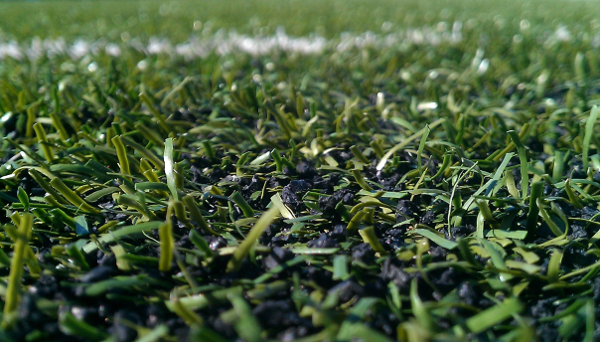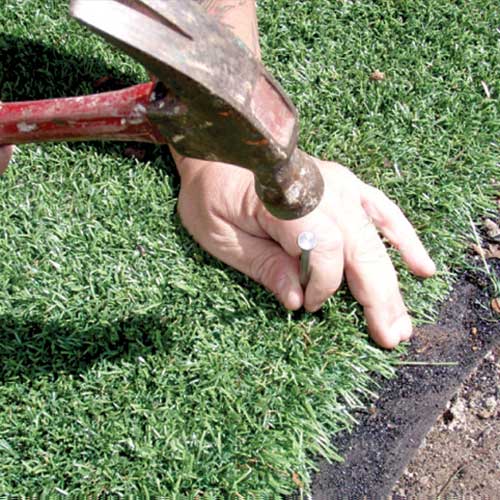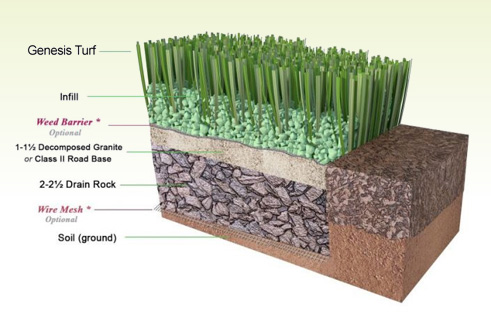Expert Arizona Turf Providers Ensuring a Natural-Looking Lawn Alternative
Expert Arizona Turf Providers Ensuring a Natural-Looking Lawn Alternative
Blog Article
See Why Homeowners Prefer Synthetic Grass for Sustainable Landscaping Practices
As property owners significantly focus on sustainability in landscape design, fabricated lawn has actually become a compelling option to conventional lawn. Its capacity to preserve water, minimize maintenance efforts, and minimize ecological influence settings it as a useful option for those seeking environment-friendly options. Moreover, the aesthetic appeal and convenience of synthetic lawn provide to varied style preferences. The implications of this change prolong past simple convenience and visual appeals, motivating a better examination of exactly how these choices affect broader ecological outcomes. What continues to be to be checked out is the complete range of advantages that synthetic grass can provide to homeowners and the atmosphere alike.
Water Conservation Conveniences
One of the most significant advantages of artificial turf is its role in water conservation. In contrast, artificial turf removes this demand entirely, as it does not call for watering.
Moreover, the installment of artificial lawn can add to a much more sustainable landscape. House owners can substantially reduce their water expenses, permitting reallocation of resources to other environmental initiatives or home uses. Additionally, synthetic grass is made to withstand various climatic problems without the need for extra watering, making it a suitable option for regions dealing with water deficiency.
The ecological benefits prolong past instant water savings. By decreasing water intake, synthetic grass assists to mitigate the influences of climate change, maintaining crucial ecological communities that are intimidated by extreme water removal. As sustainable landscaping methods acquire grip, synthetic grass emerges as a liable choice for homeowners looking for to produce environmentally friendly outdoor areas.
Lowered Upkeep Initiatives
Man-made lawn dramatically decreases upkeep efforts contrasted to standard turf yards. With synthetic grass, home owners can eliminate the lengthy tasks linked with natural landscape design, such as mowing, feeding, and weeding. This not only saves valuable time yet also lowers physical labor, making grass care accessible for people of every ages.
Standard grass need regular trimming to keep a cosmetically pleasing elevation, whereas man-made turf remains continually lavish without the requirement for cutting. In addition, home owners no longer require to use fertilizers or chemicals, which are often called for to keep all-natural lawn healthy.
Furthermore, synthetic grass is long lasting and resistant, needing minimal maintenance beyond periodic brushing and washing to remove particles. This ease of upkeep allows home owners to enjoy their exterior spaces without the consistent worry of maintenance, providing more time for recreation and household tasks. Ultimately, the lowered maintenance initiatives related to synthetic grass make it an enticing option for those seeking a low-maintenance, aesthetically appealing landscape.

Environmental Influence Reduction
There is a growing acknowledgment of the environmental advantages connected with fabricated turf, specifically in terms of water preservation and reduced chemical use. Conventional yards require substantial amounts of water, particularly in drought-prone areas, resulting in enhanced stress on regional water sources. On the other hand, synthetic lawn gets rid of the requirement for irrigation, dramatically minimizing water consumption and promoting sustainability.
In addition, standard lawn maintenance usually involves the application of pesticides, fertilizers, and herbicides, which can add to soil and water contamination. Man-made lawn minimizes this environmental hazard by requiring very little maintenance and basically removing the demand for harmful chemicals. This not only enhances soil health yet also safeguards regional ecological communities from toxic drainage.
Moreover, the production of natural grass lawns commonly entails the usage of nonrenewable fuel sources for cutting and landscaping equipment, further adding to greenhouse gas exhausts. By selecting fabricated turf, home owners can significantly lower their carbon impact related to lawn treatment activities.
Visual Allure and Flexibility
In enhancement to its environmental benefits, synthetic grass supplies substantial visual charm and convenience for landscape design. House owners can accomplish a lavish, green appearance year-round, getting rid of the seasonal variations commonly linked with natural turf. This constant visual not just find boosts the visual charm of a property but also adds to a well-kept and polished look.
Furthermore, synthetic lawn is readily available in a range of shades, designs, and textures, permitting modification to fit private preferences and layout motifs - Arizona turf. Whether made use of in household yards, industrial spaces, or recreational locations, it can effortlessly incorporate into diverse landscape design styles, from contemporary minimalist to lavish tropical settings
The flexibility of synthetic turf expands beyond mere look; it can be set up in various areas, including rooftops, patios, and also indoor rooms, producing opportunities for one-of-a-kind landscaping solutions. In addition, it is appropriate for a series of tasks, from youngsters's backyard to pet-friendly environments, giving functionality without endangering style.
Inevitably, the aesthetic appeal and adaptability of synthetic lawn make it an appealing alternative for property owners looking for sustainable landscape design options that do not sacrifice appeal for ecological obligation.

Long-Term Expense Savings
Among one of the most engaging advantages of synthetic grass is its potential for long-lasting price financial savings. Unlike natural yard, which requires routine maintenance-- including mowing, watering, feeding, and pest control-- synthetic grass substantially reduces these recurring expenses. House owners can conserve a substantial quantity on water costs, especially in regions where water shortage is a pressing problem. The elimination of lawn treatment solutions additionally adds to financial savings, as there is no requirement for customized equipment or labor.
In addition, synthetic grass has a lifespan of 15 to 25 years, depending on its high quality and usage. This toughness decreases substitute prices, making it a much more affordable option in the lengthy run. In addition, the first financial investment in fabricated lawn can usually be redeemed via the financial savings accrued gradually.
While the ahead of time cost might seem greater contrasted to sod installation, the cumulative cost savings from reduced upkeep and water usage frequently outweigh these first expenditures. Inevitably, the adoption of synthetic grass not only promotes a lasting landscape design solution yet likewise provides house owners an economically savvy alternative that straightens with lasting budgeting goals.
Conclusion
Man-made lawn arises as a compelling alternative for lasting landscaping, using considerable advantages in water preservation, reduced maintenance efforts, and decreased environmental influence. As neighborhoods significantly prioritize ecologically friendly methods, the adoption of synthetic grass represents a progressive step toward achieving resilient and lasting landscapes.
In addition, fabricated lawn is made to hold up against numerous weather problems without the demand for extra watering, making it an ideal selection for areas dealing with water shortage. (Artificial turf companies phoenix)

Synthetic lawn arises as view website an engaging choice for sustainable landscape design, providing substantial advantages in water conservation, minimized maintenance initiatives, and decreased ecological effect.
Report this page